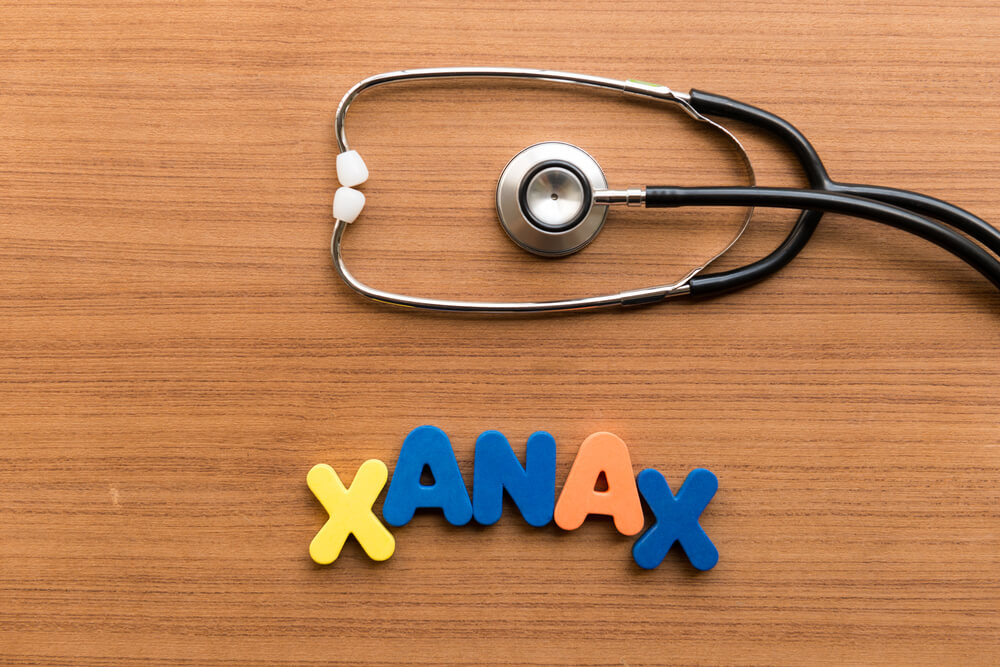Xanax Addiction Recovery: 12 Things to Know

What Is Xanax?
Prescribed under the generic drug name Alprazolam, the brand name drug Xanax is a benzodiazepine drug. Doctors prescribe Xanax primarily to treat anxiety but it can also help alleviate depression and insomnia. Unfortunately, benzodiazepines like Xanax can also be highly addictive. Like other addictive prescription drugs, Xanax can be dangerous when abused and used recreationally. Also, like other forms of drug addiction, Xanax addiction recovery takes time and treatment. WhiteSands offers a comprehensive range of substance addiction treatment programs, including both inpatient and outpatient rehab. We also offer detox programs to help people overcome their physical drug dependence. If you are suffering from a Xanax abuse problem, WhiteSands Alcohol and Drug Rehab can help.
Xanax is a benzodiazepine drug. Benzodiazepines (aka benzos) are psychoactive drugs that produce a sedative or depressant effect. Other benzos include drugs like Klonopin, Valium, and Ativan, which are also addictive. These drugs are typically safe when used as directed; however, long-term use of these drugs and recreational use can lead to dependence and addiction. For this reason, many physicians choose only to prescribe drugs like Xanax in the short term or until other drugs, like antidepressants, have a chance to build up in the person’s system to help alleviate their condition.
On the street, Xanax may be referred to by other names, including Xannies, handlebars, ladders, sticks, and benzos. Xanax usually begins to work to alleviate symptoms of anxiety within one to two hours. It stays in a person’s system for 12 to 15 hours.
What Is Xanax Used For?
Xanax and similar drugs are effective for treating conditions that include generalized anxiety disorder, social anxiety, panic disorder, sleep disorders, and seizure disorders. Sometimes doctors prescribe benzodiazepines like Xanax to people with bipolar disorder or who are recovering from alcohol addiction. Xanax alleviates the symptoms of anxiety and other conditions it’s prescribed to treat by calming neurotransmitters in the brain. When these neurotransmitters like GABA are overstimulated, the individual can experience symptoms of anxiety, which may make it difficult for them to function normally or sleep. The calming effect produced by Xanax alleviates anxiety and allows the individual to function more normally and relax.
Learn about the most commonly abused drugs here:
Is Xanax Addictive?
Xanax, along with other benzodiazepines, is addictive. A person can develop a physical and psychological dependence on this drug. People who take Xanax recreationally or abuse this drug in any way are more vulnerable to developing an addiction. A person with a Xanax addiction may take as many as 20-30 pills daily. Some people mix Xanax with other drugs or alcohol, which is dangerous. The feelings of calm and relaxation that Xanax produces can be highly pleasurable, but to achieve these feelings, a person addicted to Xanax will need to take an increasingly higher dose after they develop a tolerance to previous doses. Developing a tolerance and increasing the dose can pave the path to addiction.
Xanax can cause an overdose. In recent years, emergency room visits involving Xanax have doubled. In a recent given year, the number of Xanax-related emergency room visits exceeded 124,000. A Xanax overdose can be deadly. Symptoms of Xanax overdose include:
- Difficulty breathing
- Reduced heart rate
- Confusion
- Muscle weakness
- Fatigue
- Fainting
- Coma
12 Signs of Xanax Addiction
Some many signs and symptoms may suggest a Xanax addiction. These signs and symptoms may involve:
- Losing interest in activities normally enjoyed.
- Stockpiling the drug. People addicted to Xanax will often ‘doctor shop’ to obtain prescriptions for Xanax. They may also purchase the drug on the street to form their supply.
- Engaging in high-risk behaviors. Many people who are addicted to powerful drugs such as Xanax engage in high-risk behaviors. They might drive while under the influence of the drug or have unprotected sex. Some people with prescription drug addictions may steal to obtain the drug.
- Failing to meet obligations. A person with a Xanax addiction may begin to miss work or school. They may fail to meet other responsibilities related to their family or life in general.
- Increasing their dose. A person who increases their dose of Xanax without a doctor’s order is abusing the drug. Increasing the dose of Xanax indicates an abuse problem and many indicate that addiction is already present.
- Relationship problems. A person who is addicted to Xanax may develop relationship problems with their significant other, family members, friends, or colleagues.
- Financial problems. A person who is addicted to drugs may begin to experience financial difficulties because they are spending excessive amounts of money on the drug. They may also find it difficult to keep a job, which adds to their financial stress.
- Difficulty concentrating. A Xanax addiction can cause cognitive problems. Individuals might find it difficult to focus or may even experience memory problems.
- Taking a lot of Xanax. People with Xanax addiction often use the drug over a doctor’s prescription.
- Mood swings. A person with a Xanax addiction often exhibits mood extremes.
- Secretive. Some with a drug addiction may become more secretive and isolated.
- Withdrawal symptoms. Withdrawal symptoms are a clear indication that there is a dependence problem or addiction to the drug.
These signs and symptoms should not be ignored. If you or a loved one is experiencing any of them, their issue should be evaluated by their doctor or addiction specialists.
 Get Help with Xanax Addiction Recovery at WhiteSands Alcohol and Drug Rehab
Get Help with Xanax Addiction Recovery at WhiteSands Alcohol and Drug Rehab
Xanax addiction recovery begins with a formal evaluation at a drug rehab like WhiteSands Alcohol and Drug Rehab. Our clinicians will assess an individual’s psychological condition and drug abuse problem to recommend the ideal detox treatment. We provide individual treatment to meet each client’s unique needs. Our drug and alcohol rehab features medical detox, inpatient treatment, and outpatient treatment. Our treatment programs are based on evidence-based therapies complemented by holistic and alternative treatments that support Xanax addiction recovery.
One of the problems with addiction treatment is convincing a person that they do, in fact, need treatment. Many people who have substance addictions or abuse problems are in denial. They may deny the seriousness of their problem or mistakenly believe they can control their drug use or drinking. The fact is, if those signs and symptoms outlined above are present–any of them–the individual should be evaluated and afforded the type of treatment they need to overcome the problem.
Alcohol or drug addiction is a chronic condition, which means it’s not something that’s ‘cured.’ However, it can be managed with abstinence. Treatment helps clients manage their addiction. During therapy, we help clients identify the factors that led them to abuse alcohol and drugs like Xanax. Then, we can develop strategies for managing those triggers. Our clinicians are highly trained, experienced, and devoted to helping people heal from the effects of drug and alcohol abuse.
If you’re struggling with a Xanax addiction, you can get help at WhiteSands Alcohol and Drug Rehab. Remember that prescription drugs can be just as dangerous and deadly as street drugs when abused. Xanax is highly addictive. Once a person becomes dependent on its use, they’ll find it very difficult to stop using it without help. WhiteSands can provide that help. Contact us to learn more.
If you or a loved one needs help with abuse and/or treatment, please call the WhiteSands Treatment at (877) 855-3470. Our addiction specialists can assess your recovery needs and help you get the addiction treatment that provides the best chance for your long-term recovery.
